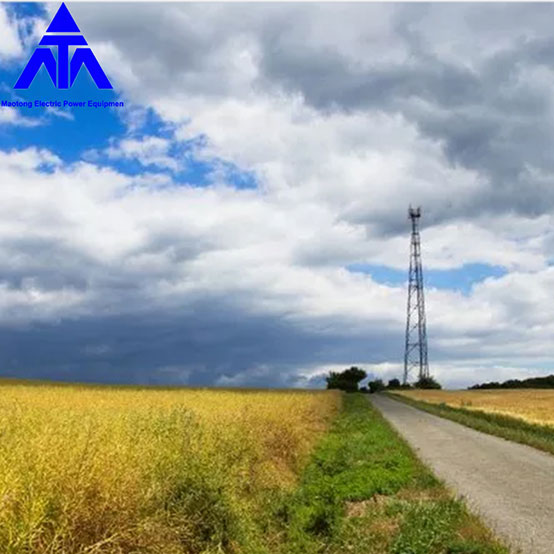Weathering the Elements: The Influence of Environmental Factors on High-Density Telecommunication Tower Steel Pipes
2024-02-20
In the world of telecommunications infrastructure, where reliability and durability are paramount, the impact of environmental factors cannot be overstated. High-density telecommunication tower steel pipes serve as the backbone of modern network deployments, providing the structural support necessary to withstand the rigors of urban landscapes and harsh environmental conditions. Let's explore how exposure to extreme weather conditions and corrosive environments influences the selection and performance of these critical components.
Extreme Weather Conditions
Temperature Extremes
Extreme temperatures, whether scorching heat or freezing cold, can significantly affect the performance and longevity of high-density telecommunication tower steel pipes. In hot climates, prolonged exposure to high temperatures can lead to thermal expansion and contraction, potentially causing structural deformation or material fatigue. Conversely, in cold climates, sub-zero temperatures can increase the risk of brittleness and fracture in steel pipes, especially if they are not properly insulated or protected.
High Winds and Storms
Strong winds and severe weather events pose another challenge for telecommunications infrastructure. High-density steel pipes must be able to withstand the forces exerted by strong winds and turbulent weather conditions without compromising structural integrity. Proper anchoring and reinforcement techniques are essential to prevent tower sway or collapse during storms, ensuring the continued operation of network infrastructure even in adverse weather conditions.
Corrosive Environments
Saltwater Exposure
In coastal areas or regions with high humidity levels, exposure to saltwater can accelerate corrosion and deterioration of high-density telecommunication tower steel pipes. Saltwater contains corrosive elements that can penetrate protective coatings and promote rust formation on steel surfaces. Over time, corrosion can weaken the structural integrity of steel pipes, leading to premature failure and costly repairs.
Industrial Pollution
Industrial areas with high levels of pollution, such as factories, refineries, and chemical plants, present another challenge for telecommunications infrastructure. Airborne pollutants, including sulfur dioxide, nitrogen oxides, and particulate matter, can react with moisture in the air to form corrosive compounds that attack steel surfaces. High-density steel pipes deployed in these environments require robust corrosion-resistant coatings and regular maintenance to mitigate the effects of industrial pollution.
Influence on Selection and Performance
Material Selection
Given the diverse range of environmental conditions encountered in telecommunications deployments, careful consideration must be given to the selection of materials for high-density telecommunication tower steel pipes. Corrosion-resistant steel alloys, such as galvanized steel or stainless steel, offer enhanced protection against rust and corrosion in harsh environments. Additionally, coatings and treatments, such as epoxy or zinc coatings, can further improve the durability and longevity of steel pipes exposed to extreme weather conditions or corrosive environments.
Maintenance Requirements
Proactive maintenance practices are essential for preserving the performance and reliability of high-density telecommunication tower steel pipes over time. Regular inspections, cleaning, and corrosion monitoring help identify and address potential issues before they escalate into major problems. Protective measures, such as applying anti-corrosion coatings or installing sacrificial anodes, can extend the service life of steel pipes and minimize the need for costly repairs or replacements.
Conclusion
Environmental factors, such as extreme weather conditions and corrosive environments, pose significant challenges for high-density telecommunication tower steel pipes. However, by carefully selecting corrosion-resistant materials, implementing protective coatings and treatments, and adopting proactive maintenance practices, network operators can ensure the durability and reliability of telecommunications infrastructure in even the harshest conditions. As telecommunications technology continues to advance and networks expand into new territories, the resilience of high-density steel pipes will remain crucial for maintaining seamless connectivity and enabling the digital transformation of society.



